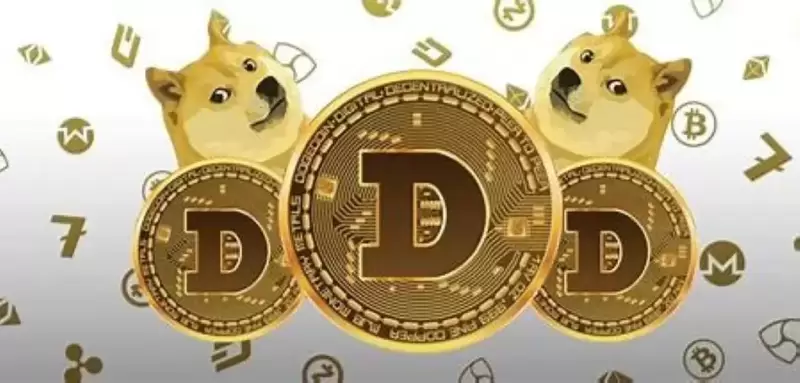 |
|
 |
|
 |
|
 |
|
 |
|
 |
|
 |
|
 |
|
 |
|
 |
|
 |
|
 |
|
 |
|
 |
|
 |
|
Cryptocurrency News Articles
Fintech and Crypto Exchanges Forge Path to DeFi Mass Adoption
Apr 18, 2024 at 08:04 pm
DeFi expansion depends on collaboration between fintech companies and crypto exchanges, which have more incentive to transition compared to traditional financial institutions. While large on-chain brokers may not be the optimal scaling solution, neutral protocols that serve as a foundation for other developments provide a better path to mass adoption.

Fintech and Crypto Exchanges Pave the Way for DeFi's Mass Adoption
The decentralized finance (DeFi) landscape has been abuzz with activity recently, with numerous financial technology (fintech) firms and crypto exchanges embracing the potential of layer-2 (L2) blockchains. This surge in interest stems from the remarkable success of Coinbase's Base L2, which has inspired entities to explore the benefits of L2s and establish their own L2-based offerings.
This trend is driven by a fundamental shift in the financial industry's landscape. Traditional finance (TradFi) incumbents, with their established infrastructure, have shown limited enthusiasm for transitioning to DeFi. In contrast, fintech firms and crypto exchanges possess a distinct advantage, as they lack their own financial infrastructure and rely heavily on TradFi's fee-laden services. Embracing L2s and DeFi protocols presents an opportunity for these entities to gain control over their infrastructure, enhance efficiency, and reduce operating costs, ultimately unlocking significant profit potential.
"TradFi has very little interest in moving to DeFi, to be frank, just because they have such an unfair advantage with their current infrastructure," observed Paul Frambot, CEO of DeFi lending firm Morpho Labs. "However, fintechs don't have their own financial infrastructure, they have to go through all the fees of the TradFi guys. But they have distribution, they have adoption. So if they start owning their own infrastructure by building on top of layer-2s and immutable DeFi, then they can start generating more profits from it, gain efficiency and limit their operating costs."
Case in point, Robinhood, the popular trading platform, recently announced a partnership with L2 blockchain Arbitrum. Meanwhile, many other fintech firms have implemented wallet infrastructure to seamlessly integrate with Web3. These moves signal a clear recognition of the transformative potential of L2s and DeFi in disrupting the financial landscape.
Another key element in DeFi's growth trajectory, according to Frambot, is the emergence of neutral protocols that serve as the foundation for various financial applications. These protocols, akin to the rails of the internet, provide a flexible and extensible platform for building diverse financial products tailored to specific use cases. This approach contrasts with monolithic on-chain brokers or funds like Aave or Compound, which face scalability limitations and challenges in meeting the diverse compliance requirements of a global market.
"We can't have [a] one-size-fits-all monolith that meets all the different compliance needs of the world," Frambot emphasized. "People want different [know your customer] or risk. So you have to have the core protocol that is completely un-opinionated, and people build specific financial products on top for their specific use cases."
Morpho Labs, which initially gained prominence as an optimization service for DeFi giants like Aave, exemplifies this shift towards neutral protocols. Morpho has evolved into a base-level protocol, similar to Uniswap, the leading decentralized exchange, enabling the development of specialized financial products that cater to diverse market segments.
Frambot believes that the path to mass adoption of DeFi lies in the convergence of fintech firms, crypto exchanges, and neutral protocols. This alliance creates a disruptive force with a compelling incentive to embrace new infrastructure and transform the financial industry. By harnessing the power of L2s and neutral protocols, these entities can unlock the full potential of DeFi, bringing its benefits to a much broader audience.
As Frambot asserts, "I'm still frustrated that we're not changing finance at all. We're still playing for crypto users that already have crypto. The promise of the open financial infrastructure underpinning every financial service is miles and miles away from where we are right now."
The fusion of fintech, crypto exchanges, and neutral protocols represents a pivotal moment in DeFi's evolution. Together, these forces have the potential to shatter the barriers that have hindered DeFi's mass adoption, ushering in a new era of financial innovation and inclusivity.
Disclaimer:info@kdj.com
The information provided is not trading advice. kdj.com does not assume any responsibility for any investments made based on the information provided in this article. Cryptocurrencies are highly volatile and it is highly recommended that you invest with caution after thorough research!
If you believe that the content used on this website infringes your copyright, please contact us immediately (info@kdj.com) and we will delete it promptly.




















![Trading is to follow [Review Video] Gold Bitcoin Crude Oil Orders Make Profits! Trading is to follow [Review Video] Gold Bitcoin Crude Oil Orders Make Profits!](/uploads/2025/04/26/cryptocurrencies-news/videos/trading-follow-review-video-gold-bitcoin-crude-oil-profits/image-1.webp)






































